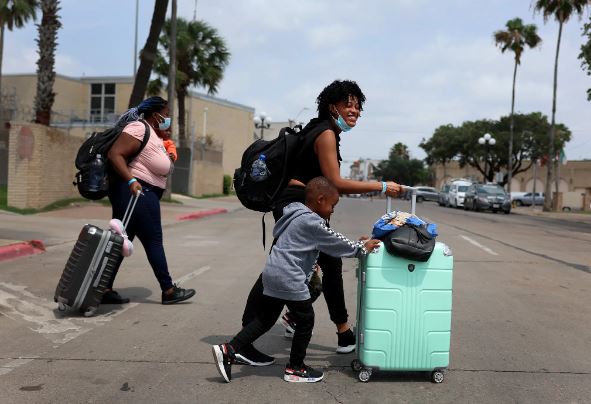The Biden administration plans to shield approximately 300,000 Haitians from deportation and grant them work authorization in the United States, according to sources familiar with the initiative. This move is part of a broader effort to protect immigrants from returning to countries facing severe crises.
The plan will extend temporary protected status (TPS) to Haitians who arrived in the U.S. between November 2022 and early June 2023, said three individuals who requested anonymity as they were not authorized to discuss the policy publicly. This action is one of several recent immigration measures by President Biden, including facilitating citizenship for undocumented spouses of U.S. citizens and tightening asylum policies at the southern border.
President Biden’s approach to immigration, especially at the southern border, has become more restrictive, likely in an effort to strengthen his position for re-election. This stance has drawn criticism from both sides: immigration advocates on the left decry his asylum crackdowns, while conservative critics, including former President Donald Trump, accuse him of being too lenient on illegal immigration.
Over the past few years, the Biden administration has used TPS to protect hundreds of thousands of migrants from countries such as Venezuela, Ukraine, Afghanistan, and Haiti. The TPS for Haiti was initially designated by Homeland Security Secretary Alejandro N. Mayorkas in 2021 and renewed in late 2022 due to escalating violence and political instability in the country, including the assassination of President Jovenel Moïse in 2021 and widespread gang control.
Despite these protections, Immigration and Customs Enforcement (ICE) has continued deportations to Haiti in recent months. Earlier this year, ICE deported dozens of Haitians to areas far from the capital. The Department of Homeland Security (DHS) defended these actions, stating that legal pathways exist for Haitians to enter the U.S.
In response to the ongoing crisis, the State Department has taken measures to ensure the safety of U.S. citizens and embassy workers in Haiti. Since July 2023, families of embassy staff have been evacuated, and American visitors have been advised against traveling to Haiti due to risks of kidnapping, crime, civil unrest, and inadequate healthcare infrastructure.
The United Nations reported in March that gang violence had claimed over 1,500 lives in Haiti this year. The country’s prime minister, Ariel Henry, resigned in late April, citing pressure from local gangs that had forced him to remain abroad. In his resignation letter, Henry expressed sympathy for the suffering of the Haitian people during this tumultuous period.
Democratic lawmakers have been urging the Biden administration to extend TPS protections and halt deportations to Haiti. In March, a letter signed by 67 Democratic and independent lawmakers called for immediate action, stating, The Biden administration’s latest move to protect Haitian migrants reflects a recognition of the dire conditions in Haiti and the need for compassionate immigration policies. As the situation in Haiti remains unstable, the U.S. government continues to navigate the complex balance of protecting vulnerable migrants while addressing broader immigration challenges.

